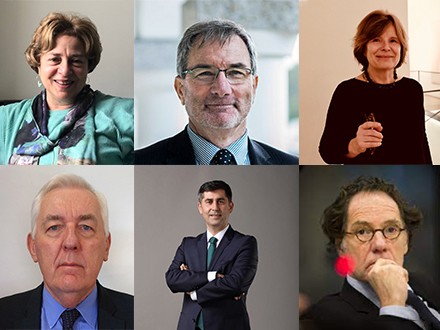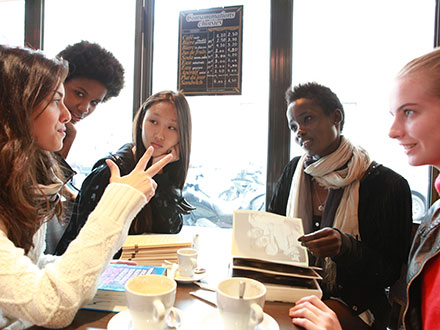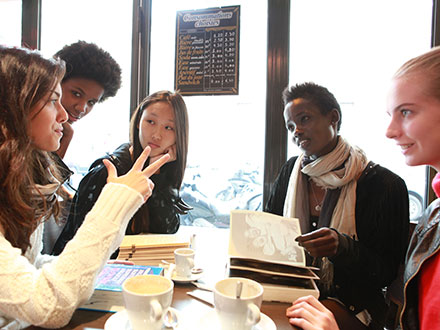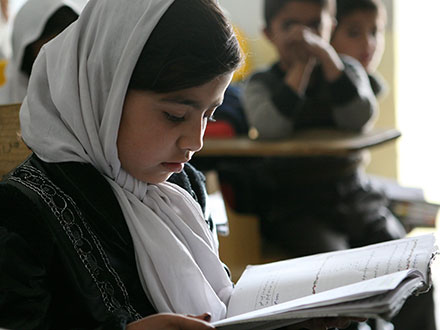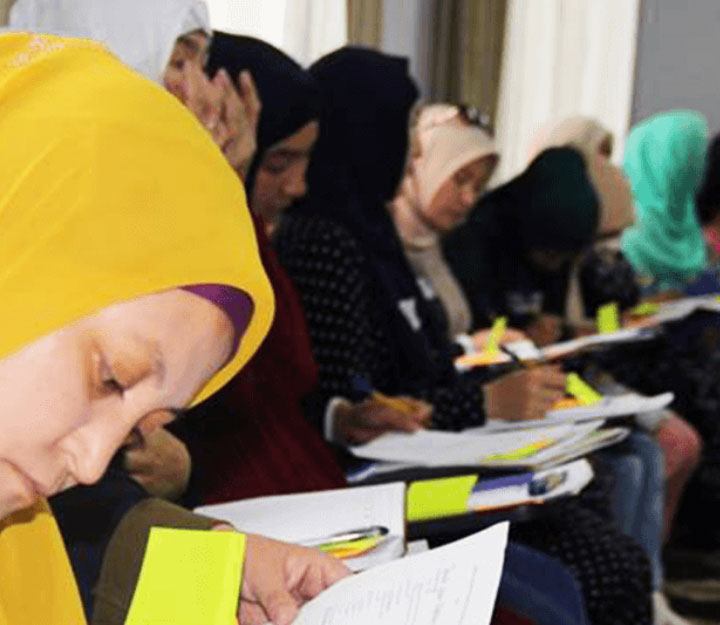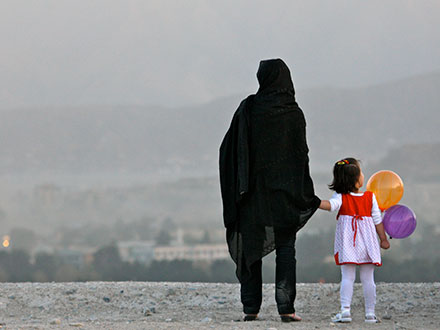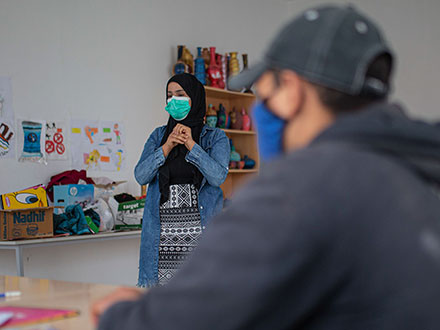Hedayah Presents the STRIVE Global Program
by David Ludescher
Welcome to a new series on the STRIVE Global program. In this series, we will present a project from this program every month. But what is the STRIVE Global program in the first place? This article will try to answer this question.
To do this, we will focus on three points. First, we will introduce the program, second, we will explain the purpose and target regions of the program, and finally, we will present the different strands of the program.
The European Union, being a member of Hedayah’s Steering Board, supports the organization on financial and operational grounds. As a result of this, Hedayah and the EU in 2015 developed the Strengthening Resilience to Violent Extremism (STRIVE) Global program. The STRIVE Global program was subsequently launched in May 2015 and will conclude in May 2021. The program is funded by the European Union through its Instrument Contributing to the Stability and Peace (IcSP), which is the EU’s instrument to provide funding for projects linked to global and trans-regional threats.
The overall purpose of our program is to build the capacity of state and non-state actors to effectively challenge radicalization and recruitment to terrorism while continuing to respect human rights and international law. Further objectives include the promotion of non-coercive responses to terrorism, considering that traditional coercive responses can be ineffective or even counter-productive, and the widening of the pool of people involved in CVE by raising the awareness of state and non-state actors and building the capacity of credible voices within local communities. Our program is based on four different strands and focusses on eleven target countries, which were defined through 12 preliminary scoping missions on the ground, and where credible CSOs with access to key target groups were identified.
Throughout the four different strands, in total 36 organizations have been supported through this program. The STRIVE Global program selected these organizations through seven different calls for proposals, where innovative or original ideas were especially valued, as well as through direct awards. The geographic focus is on the Western Balkans (Albania, Bosnia & Herzegovina, North Macedonia, Montenegro, Serbia), Central Asia (Kyrgyzstan, Tajikistan, Turkmenistan), the MENA region (Jordan), the South Caucasus (Georgia), and Turkey, which have been defined as target regions for this program. The map shows the different countries in the region where we support projects in one or several different strands. We will now guide you through the four strands and present the purpose of each strand.
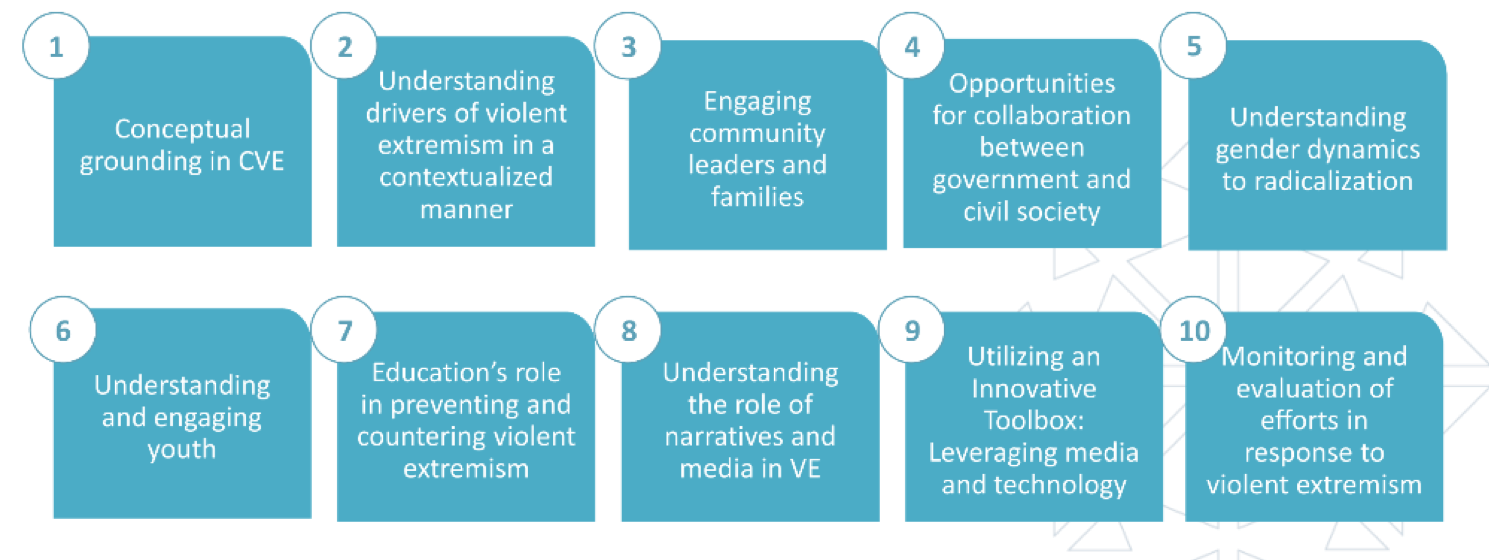
Strand Number One: Development of a culturally literate CVE curriculum
Search for Common Ground (SFCG) and Hedayah jointly developed this curriculum. The purpose of this CVE curriculum is to raise awareness on collaborative CVE approaches, while enabling and training government officials and civil society organizations (CSOs) to be better equipped to prevent and counter violent extremism through ten modules, ten webinars, 17 handouts and 24 videos. These ten modules introduce the field of CVE, help explain the drivers of violent extremism in a contextualized manner focusing on the MENA region and Central Asia, and offer guidance on how to design, implement and monitor constructive responses to violent extremism. It is available in English, Arabic, and Russian. The version adapted for the MENA region can be found here[1], and the version for Central Asia can be found here[2]. This curriculum can also be taught at a country-level, as Hedayah previously did in Turkmenistan, where a total of 30 government officials have been trained on two occasions. The ten modules treated in the CVE curriculum are the following.
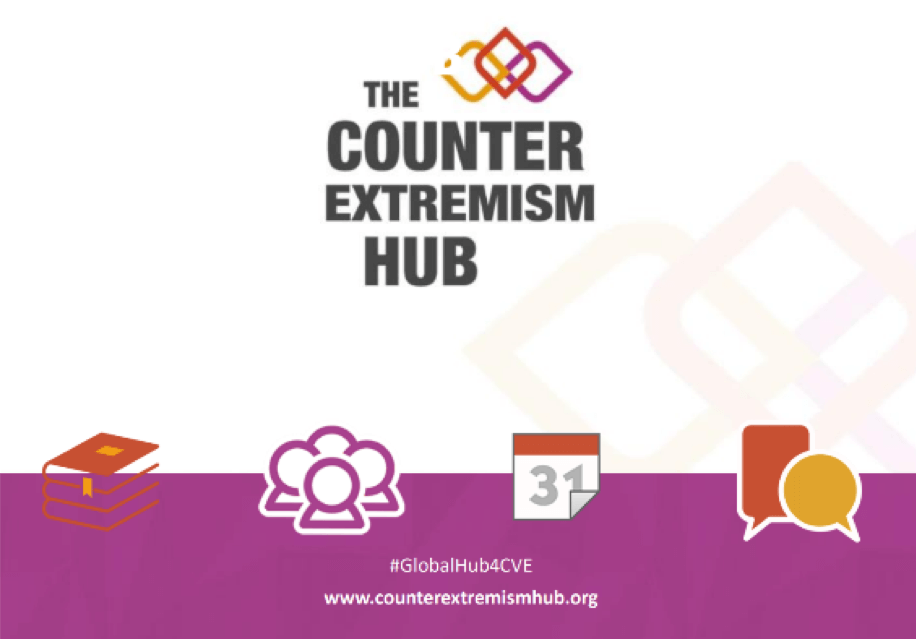
Strand Number Two: Empowerment of Civil Society Organizations
This strand focuses on raising the awareness of and building support for CVE among CSOs and public officials and helping CSOs design, implement, monitor, and fund localized projects on CVE. Hedayah provides constant capacity building to the grantees. This starts from the inception phase and the proposal writing and goes until the end of the project implementation. This not only gives the grantees the opportunity for developing actions on CVE, but also helps them improve their project management skills and prepare them for future projects in this field. The same logic of intervention is also true for strands three and four.
CSOs are encouraged to adapt existing materials on the topic to their local context where possible. The goal is to develop approaches that have a demonstrable impact on the threat posed by radicalization and recruitment to terrorism and to build the capacities and reinforce the role of CSOs in CVE, while encouraging collaborative approaches between CSOs and governments. To achieve this, interventions that are embedded in the national CVE strategy are encouraged, in order to promote cooperation between CSOs and governmental agencies. To ensure a participatory approach, CSOs also request supporting letters from local authorities or sign memoranda of understanding with them. Where possible, we also try to build synergies between CSOs of different countries to increase their impact and for them to share their expertise and material. The final impact of the projects is measured through baseline and end-line reports. In total, the STRIVE Global program has already concluded seven different projects throughout the target countries and is currently implementing eleven more projects.
Strand Number Three: Improvement of media coverage
The purpose of this strand is to address the challenge of media coverage on terrorism, as well as foster the capacity of state and media actors, in order to improve the quality of reporting, build the capacity of recognizing fake news and conspiracy theories, and reduce the use of hate speech and violations of privacy in the media. Furthermore, a voluntary code of conduct suitable for different locations has been developed by Hedayah. In this strand, we are currently supporting the implementation of seven journalism projects in Albania, Bosnia & Herzegovina, North Macedonia, Serbia, Georgia, Tajikistan, and Jordan. To verify the outcomes and ensure the quality of the projects from the different strands, we have so far concluded 12 monitoring missions on the ground, adding to the monitoring of the projects done online on a monthly basis.
Strand Number Four: Development of research resources
The goal of this final strand is to develop resources that provide an evidence base for CVE interventions. For this, the STRIVE Global program has already concluded nine research projects and is currently implementing four more. Through this program we have also elaborated two research pieces on the impact of journalism on violent extremism. Furthermore, Hedayah and the Institute of Strategic Dialogue created a global CVE web portal, The Counter Extremism Hub, to collate CVE publications, as available per country. Its goal is to bring together all relevant actors working in the field of CVE, providing an opportunity for practitioners, researchers, governments, and policymakers to showcase their work, practices, and knowledge. Furthermore, users can create their own profiles and connect with other individuals and organizations through the Hub’s global directory and engage in forum discussions on related topics. The website, which already contains around 2’000 resources in its library, can be found here[3].
Finally, the STRIVE Global program already resulted in some unexpected and positive outcomes. SFCG used the CVE curriculum developed under strand one in Iraq and Guinea, where it trained a total of 489 local actors. A local CSO also further adapted the curriculum to the local context of Georgia. There have also been synergies created between governments of different countries, as shown by the visit of an official government delegation of Turkmenistan to Albania. Furthermore, local governments or international organizations have also adopted several documents developed by CSOs, such as in the case of a CSO from Kyrgyzstan that developed a media literacy curriculum which the Krygyz government is now using to conduct media literacy trainings at schools. Another example is in the case of a CSO from North Macedonia that developed a referral mechanism which the International Organization for Migration (IOM) and the Organization for Security and Co-operation in Europe (OSCE) in the country is now using.
We hope you enjoyed this introduction to our program and look forward to presenting you one of the projects conducted through the STRIVE Global program each month. Next month we present the work done by the Psychosocial Innovation Network (PIN) from Serbia.
References
[1] CVE Training Curriculum – The MENA Edition
[2] CVE Training Curriculum – The Central Asian Edition
[3] The Counter Extremism Hub
About STRIVE Global In Focus
The STRIVE Global: In Focus series will present a series of articles presenting the overarching STRIVE Global program, as well as insights and outcomes from its projects. The STRIVE Global program aims at building the capacity of state and non-state actors to effectively challenge radicalization and recruitment to terrorism while continuing to respect human rights and international law. Throughout its implementation, the program has supported 36 different civil society organizations in the Western Balkans, Central Asia, the South Caucasus, the MENA region, and Turkey.
In this series, we will present one of these organizations and its respective project each month. The series serves as a contribution to the conversation around diverse CVE solutions and pushes forward the quest for more research and innovation in the field. The authors of the articles are the STRIVE Global team and the opinions expressed in these articles are their own and not representative of Hedayah.



